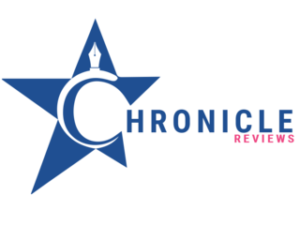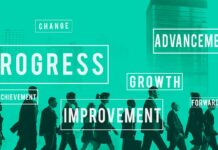What is WordPress developer?
A WordPress developer is someone who specializes in creating websites using the WordPress platform. WordPress is a popular content management system (CMS) that allows users to build and manage websites without needing extensive coding knowledge.
WordPress developers typically have expertise in:
- Theme development: Creating custom WordPress themes or modifying existing ones to suit a client’s needs.
- Plugin development: Building custom plugins to add specific functionalities or features to a WordPress website.
- Customization: Tailoring the appearance and functionality of WordPress websites to meet client requirements.
- Optimization: Improving the performance and speed of WordPress websites through optimization techniques.
- Maintenance: Providing ongoing support, updates, and maintenance for WordPress websites to ensure they remain secure and up-to-date.
Overall, WordPress developers play a crucial role in designing, building, and maintaining websites for individuals, businesses, and organizations using the WordPress platform.
How to become a WordPress developer?
Becoming a WordPress developer involves several steps, including learning the necessary skills, gaining practical experience, and building a portfolio. Here’s a general guide on how to become a WordPress developer:
- Learn HTML, CSS, and JavaScript: These are foundational web development languages that are essential for building websites, including WordPress sites. There are many online resources, tutorials, and courses available to learn these languages, such as Codecademy, freeCodeCamp, and MDN Web Docs.
- Understand PHP: WordPress is built on PHP, so having a good understanding of PHP programming language is crucial for WordPress development. You can learn PHP through online courses, books, and tutorials.
- Familiarize Yourself with WordPress: Start by installing WordPress locally on your computer or set up a WordPress hosting environment. Explore the WordPress dashboard, themes, plugins, and how they work together. The WordPress Codex and official documentation are valuable resources for learning about WordPress.
- Learn Theme Development: Study how WordPress themes are structured and how to create custom themes from scratch. Understand template files, template tags, and the WordPress template hierarchy. You can find tutorials and courses on WordPress theme development online.
- Explore Plugin Development: Dive into plugin development to extend the functionality of WordPress. Learn how to create custom plugins to add new features or modify existing ones. The WordPress Plugin Handbook is a useful resource for understanding plugin development best practices.
- Practice, Practice, Practice: The best way to learn WordPress development is by practicing your skills. Start by building simple WordPress themes and plugins, and gradually tackle more complex projects. Experiment with different features and functionalities to deepen your understanding.
- Contribute to the Community: Get involved in the WordPress community by joining forums, attending meetups, and contributing to the WordPress Core, themes, or plugins. Participating in the community can help you learn from others, get feedback on your work, and establish your reputation as a WordPress developer.
- Build a Portfolio: Create a portfolio showcasing your WordPress projects, including themes you’ve developed, plugins you’ve built, and any customizations you’ve made. A strong portfolio is essential for attracting clients or employers.
- Stay Updated: The field of web development, including WordPress, is constantly evolving. Stay updated with the latest trends, technologies, and best practices by following blogs, attending conferences, and continuing your education.
By following these steps and dedicating time to learning and practicing, you can become a proficient WordPress developer. Remember that becoming skilled in WordPress development takes time and effort, so be patient and persistent in your journey.
Lear More | Benefits To Develop A Career in IT Industry
WordPress development refers to the process of building and customizing websites using the WordPress platform. WordPress is a popular open-source content management system (CMS) that powers a significant portion of the websites on the internet. WordPress development involves various aspects, including:
- Theme Development: Creating or customizing WordPress themes to control the design, layout, and functionality of a website. This includes writing HTML, CSS, JavaScript, and PHP code to create the visual appearance and user experience of the site.
- Plugin Development: Building custom plugins or extending existing ones to add specific features or functionality to a WordPress website. Plugins can range from simple tools to complex applications, such as e-commerce systems, social media integrations, or membership sites.
- Customization: Tailoring WordPress websites to meet specific requirements or preferences. This may involve modifying theme files, adding custom functionality through plugins or custom code, and integrating third-party services or APIs.
- Optimization: Improving the performance, security, and search engine optimization (SEO) of WordPress websites. This includes optimizing code, implementing caching mechanisms, securing the site against vulnerabilities, and optimizing content for better search engine visibility.
- Maintenance and Support: Providing ongoing maintenance, updates, and support for WordPress websites to ensure they remain secure, up-to-date, and functioning properly. This may involve troubleshooting issues, fixing bugs, and performing regular backups and updates.
WordPress development can be done by individuals, agencies, or organizations with varying levels of expertise, from beginners to experienced professionals. It requires a combination of technical skills, creativity, problem-solving abilities, and familiarity with the WordPress ecosystem. Whether you’re building a personal blog, a business website, an e-commerce store, or a custom web application, WordPress development offers a flexible and powerful platform for creating diverse types of websites.
Is WordPress developer a good career?
Becoming a WordPress developer can indeed be a rewarding and fulfilling career choice for several reasons:
- High Demand: WordPress powers a significant portion of the web, with millions of websites built on the platform. As a result, there is a constant demand for skilled WordPress developers to create, customize, and maintain these websites.
- Flexibility: WordPress development offers flexibility in terms of the types of projects you can work on. Whether it’s building simple blogs, corporate websites, e-commerce stores, or custom web applications, there are countless opportunities to apply your skills in diverse projects.
- Remote Work Opportunities: Many WordPress development jobs and freelance projects allow for remote work, giving you the flexibility to work from anywhere with an internet connection. This can be especially appealing for those who value work-life balance and location independence.
- Continuous Learning: The field of WordPress development is constantly evolving, with new technologies, techniques, and best practices emerging regularly. This means there are always opportunities for continuous learning and skill development, keeping the work dynamic and engaging.
- Freelancing and Entrepreneurship: As a WordPress developer, you have the option to work as a freelancer or start your own web development business. This allows you to have greater control over your projects, clients, and schedule, as well as the potential for higher earnings.
- Community and Support: The WordPress community is vast and supportive, with forums, meetups, conferences, and online resources available to help developers learn, grow, and network. Being part of such a community can provide valuable opportunities for collaboration, mentorship, and professional growth.
However, like any career path, becoming a WordPress developer also has its challenges. It requires continuous learning to stay updated with the latest technologies and trends, and competition can be fierce in the freelance market. Additionally, while WordPress development can be financially rewarding, salaries and earning potential may vary depending on factors such as skill level, experience, location, and market demand.
Overall, if you enjoy web development, have a passion for learning, and are willing to put in the effort to continuously improve your skills, a career as a WordPress developer can offer a fulfilling and lucrative path in the ever-expanding digital landscape.






















